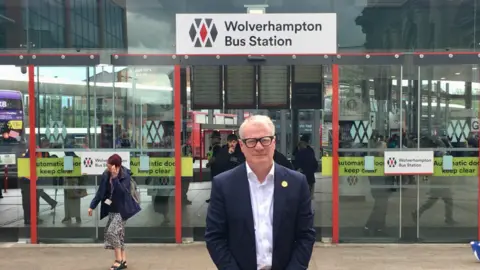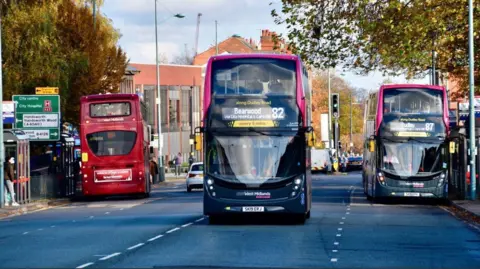Call for reform over decline in bus trips
 LDRS
LDRSDistances travelled by buses on the West Midlands network are decreasing, according to a report, resulting in renewed calls for a major reform.
The West Midlands Combined Authority (WMCA) report revealed the number of kilometres travelled over the past 14 years dropped from more than 173 million in 2010 to about 115 million last year.
"Declining bus patronage" has caused the "size and scope of the bus network" to decrease, the report said.
A consultation on West Midlands Mayor Richard Parker's plans to introduce a bus franchise system to replace the current deregulated model is running until 30 March.
Soon after he was elected, Parker set out his plans to overhaul the bus service.
He argued Transport for West Midlands subsidised the current service with £50m per year and yet the public still had no control over fares, routes and timetables.
Eighty per cent of all public transport users in the West Midlands were bus passengers, Parker said.

According to the draft report, there has been a 33.6% reduction in distances travelled by buses since 2010.
It outlined how the Covid pandemic caused a fall in the total number of kilometres travelled between 2020 and 2021 from 151.52 million to 129.15 million.
The report continued: "Although 2022 saw an increase, numbers have not returned to pre-pandemic levels.
"With declining bus patronage, the network has become increasingly dependent on public funding.
"As a result, the size and scope of the bus network, have decreased."
The WMCA document added integrating walking and cycling with public transport routes was "equally important to improve connectivity and reduce traffic".
This news was gathered by the Local Democracy Reporting Service, which covers councils and other public service organisations.
Follow BBC Wolverhampton & Black Country on BBC Sounds, Facebook, X and Instagram.
